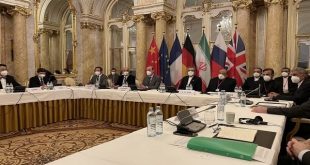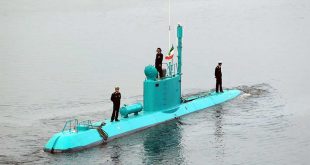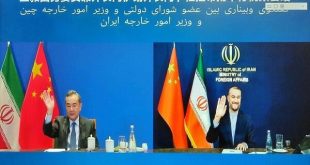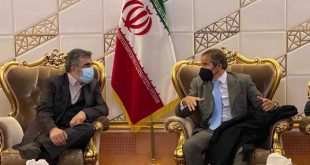CAIRO, Egypt — Since when does the British government take orders from Saudi Arabia? That’s the question raised by a seemingly dry news story out of the UK this past week.
The story, which emerged Tuesday, was that UK Prime Minister David Cameron recently ordered an inquiry into the links between the London office of the transnational, Islamic political organization known as the Muslim Brotherhood and terrorist attacks in Egypt.
Under normal circumstances, this inquiry would raise a few eyebrows. It isn’t normally the prime minister’s job to initiate terrorism investigations, nor would the ambassador to Saudi Arabia normally be put in charge, as happened here — particularly given that the Muslim Brotherhood is not alleged to have perpetrated any acts of terrorism in that country.
There are repeated claims in Egypt that Brotherhood masterminds are behind the bombings and gun attacks that have peppered Egypt for the past nine months and killed nearly 500 people, mostly police and soldiers. But no evidence has been produced, and most observers treat the allegation with exasperation and bemusement, seeing it as a political maneuver to help the state suppress the group.
So why was the UK inquiry ordered? The answer may lie with Saudi Arabia. The oil-rich kingdom seems to see the Brotherhood as a huge threat — partly, GlobalPost was told, because of a file full of dubious evidence passed to Saudi leaders by a Prince from a nearby emirate. And now they appear to be using their influence to push back against the Brotherhood in London, as well as in other locations.
“We have been under huge pressure, as have the Americans, from the Saudis to do something about the Muslim Brotherhood. They consider them to be a terrorist organization and are already angry at us for a range of reasons,” a senior UK official told the Financial Times on condition of anonymity.
Downing Street officially denied that the inquiry is a product of Saudi pressure, saying it is driven by a desire to “to get an understanding of the [Muslim Brotherhood].”
Saudi Arabia’s History With the Muslim Brotherhood
Saudi Arabia’s animosity toward the Brotherhood is the product of a complex historical relationship. Brotherhood members fleeing repression in Gamal Abdel Nasser’s Egypt during the 1950s and 1960s settled in the Gulf, where they spread their views and extended their network.
The Brotherhood in the Gulf, and those whom they influenced, always understood that the price of their continued toleration was political quiescence. But they spoke out against the two Gulf wars, which the Gulf monarchies supported, and in the wake of the Arab Spring becamemore critical. Once Muslim Brotherhood member President Mohammed Morsi was elected president in Egypt, he reached out to Saudi Arabia’s arch enemy, Iran.
For the Gulf royal families, the Brothers represent a challenge to their domestic and regional power: an organized movement, willing to appeal to popular discontent by talking about democracy, and assert a vision of Islamic politics challenging that on which the Saudi king bases his legitimacy.
In reality the Brotherhood poses a very minor threat to the immensely stable Gulf monarchies, where their support is neither well-organized nor committed. But Saudi Arabia has designated the Brotherhood a terrorist organization, supported their overthrow in Egypt, and is now seeking to clamp down on the activities in the UK, as well.
“This is a very strange policy,” Michael Stephens of the Royal United Services Institute, a UK-based think tank, said.
Stephens says that part of the problem is that Saudi Arabia has based its orientation to the Brotherhood on information of dubious quality provided by Mohamed bin Zayyed, Crown Prince of the UAE, who “handed the Saudis a file of supposed Brotherhood transgressions and Qatar’s involvement with them, and the Saudis believed it.”
The file was supposedly based on concrete evidence. “I’m not joking,” Stephens says, “but some of this ‘concrete evidence’ is newspaper clippings from pro-Sisi [Egyptian] newspapers.”
Egyptian newspapers are notoriously unreliable, including those that support former military chief Abdel Fatah al-Sisi. The Egyptian military, with Sisi at its head, overthrew former president Morsi and his Muslim Brotherhood-affiliated government last July, and Sisi is now on course to win the forthcoming presidential elections.
The Gulf States Make Their Move
After Sisi, a former military attache in Saudi Arabia, led the overthrow of Morsi on July 3, Saudi Arabia and the UAE rushed to provide financial support, announcing packages worth billions of dollars, without which the current government would be unable to meet its basic spending requirements. In a March 7 statement, Saudi Arabia designated the Brotherhood a terrorist organisation, following Egypt’s similar move on December 25.
Saudi Arabia and the UAE supported the coup, observers believe, in order to pursue their campaign against the Brotherhood.
As US and UK foreign policy in the Middle East has become less muscular in recent years, Saudi Arabia and UAE have become more assertive, moving to fill the power vacuum left by the Western allies and increasingly setting their own agenda in Lebanon, Iraq, Egypt, and Syria, where Saudi Arabia has helped stitch together an alliance of rebel groups which has sidelined the Muslim Brotherhood.
So Why Would the UK Feel Obliged to Investigate?
The UK is vulnerable to Gulf pressure for both economic and political reasons.
Saudi Arabia and UAE are two of the UK’s biggest trading partners, with annual bilateral trade with Saudi Arabia alone worth over 10 billion pounds, about $16.6 billion, in 2012. There are currently around 200 UK-Saudi joint ventures with a total investment estimated at around $17.5 billion, according to the Middle East Association, a forum for UK businesses working in the region.
“I think there’s a sense particularly in Abu Dhabi that we need [the Emiratis] more than they need us,” Stephens said. “That does have an influence on the way that pressure is put on British diplomats and British trade representatives when dealing with this issue: that we need to bear in mind that they are propping up our economy which is still struggling.”
Both Stephens and Dr. Chris Davidson of Durham University, who also studies the Gulf monarchies, believe that “soft power” is also a huge factor, as are security links.
In 2006, Tony Blair intervened to end a probe by the Serious Fraud Office into allegations that British company BAE Systems had used bribery to secure an armaments deal worth 40 billion pounds (about $66 billion), claiming that the probe would cause “serious damage” to cooperation with the Saudis on security matters. The attorney general argued that “the need to safeguard national and international security” overrode the public interest in pursuing the investigation.
Cameron’s latest inquiry has given the impression that the UK has, once again, succumbed to Saudi influence.
 WILAYAH NEWS VOICE OF THE GLOBAL AWAKENING
WILAYAH NEWS VOICE OF THE GLOBAL AWAKENING






